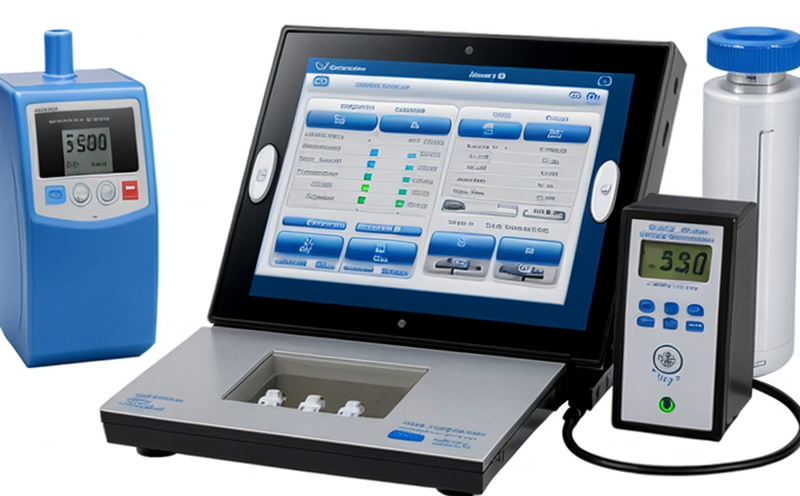Accelerated Aging Shelf-Life Testing of Infusion Devices
The shelf-life testing of infusion devices is a critical aspect of ensuring product safety and efficacy. This accelerated aging process simulates the effects of time on medical devices to determine their durability, reliability, and performance over extended periods.
During this test, infusion pumps and drug delivery systems are subjected to high-temperature environments that mimic real-world conditions. The goal is to assess how these devices hold up under accelerated aging without compromising safety or functionality. This testing helps manufacturers meet regulatory requirements and ensures consistent quality across product lines.
The process involves carefully selecting test parameters based on the specific device type, material composition, and expected shelf life. Specimens are exposed to controlled temperature and humidity levels that exceed normal storage conditions by several orders of magnitude. By doing so, potential failures can be detected early in the development cycle, allowing for necessary adjustments before commercial release.
Accurate data collection throughout the testing process is essential for interpreting results correctly. This includes monitoring critical performance metrics such as system integrity, fluid flow rates, battery life, and overall operability. Once the test concludes, detailed reports are generated summarizing key findings and providing insights into any issues encountered during accelerated aging.
Compliance with international standards is crucial for ensuring reliability in shelf-life testing. Relevant guidelines include ISO 10993-18 (Biocompatibility evaluation of medical devices: Particular aspects related to the storage life), ASTM F2642 (Standard Practice for Determining Shelf-Life of Medical Devices Using Accelerated Aging Methods), and EN ISO 17853-6 (Biological evaluation of medical devices – Particular aspects related to the shelf-life of medical devices).
Our team utilizes state-of-the-art equipment designed specifically for this type of testing. Our facilities are equipped with climate chambers capable of maintaining precise temperature and humidity settings, as well as sophisticated monitoring systems that track specimen conditions continuously.
| Environmental Factors | Conditions |
|---|---|
| Temperature Range | -40°C to 125°C |
| Humidity Levels | 30% RH to 98% RH |
Applied Standards
The shelf-life testing of infusion devices adheres closely to several internationally recognized standards. These include:
- ISO 10993-18: Biocompatibility evaluation of medical devices: Particular aspects related to the storage life.
- ASTM F2642: Standard Practice for Determining Shelf-Life of Medical Devices Using Accelerated Aging Methods.
- EN ISO 17853-6: Biological evaluation of medical devices – Particular aspects related to the shelf-life of medical devices.
Industry Applications
The primary application for accelerated aging shelf-life testing is ensuring that infusion pumps and drug delivery systems can withstand prolonged exposure to harsh environmental conditions without failing. This type of testing is particularly important for devices intended for extended use in challenging environments, such as hospitals or field operations.
- Ensures regulatory compliance with international standards.
- Reduces the risk of product recalls due to premature failure.
- Improves overall device reliability and patient safety.
Quality and Reliability Assurance
This testing plays a vital role in maintaining high-quality standards throughout the manufacturing process. By identifying potential weaknesses early on, companies can implement corrective actions to prevent costly mistakes downstream.
- Reduces the likelihood of field failures leading to adverse events.
- Saves time and resources by avoiding rework or redesign efforts.





